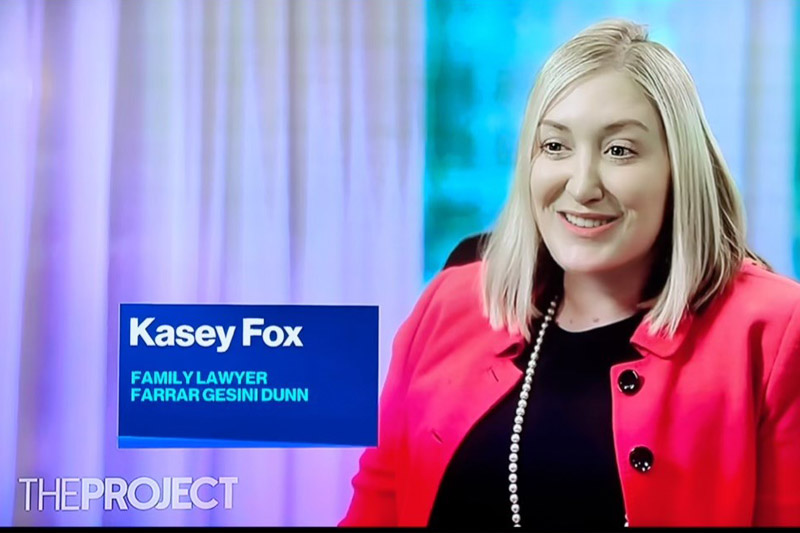
In Australia, Binding Financial Agreements (BFAs), colloquially known as prenups, are becoming more common, particularly for people who are in a second de facto relationship or marriage and those receiving gifts from their parents to purchase a first home. Couples are far more likely to see eye-to-eye at the start of the relationship rather than after separation. Discussing your finances and a BFA at the start of the relationship can be a good way to establish what you each think would be a fair outcome if you were to separate in the future and to avoid the pain and cost of going to Court.
BFAs are not like the prenups you see depicted in TV shows and movies. Unlike what you may have seen on the small screen, a Binding Financial Agreement in Australia won’t include clauses which say that if you cheat on your partner you get nothing (such as in White Lotus) or have provisions saying you get more money if you have a boy as opposed to a girl (like in the very early days of Sex and the City).
Who should have a BFA? The type of clients we recommend Financial Agreements to, are generally those who want to avoid a possible argument in the future, or worse still, a Court battle. They can be particularly helpful for clients who have a business and when parents want to gift assets or money to their children, but are concerned about a future claim from a partner. We encourage our clients to talk to their partners to discuss issues such as: ‘what happens to my super if we split?’, and ‘what do we think is fair if either of us receive an inheritance?’.
BFAs can also be used by people who are already in a de facto relationship, and even for those who are already married (often referred to as postnups). Binding Financial Agreements are also appropriate for those in the LGBTIQ+ community.
The premise behind one of these pre-nuptial agreements (or postnups) is for both parties to reach an agreement, while they are on good terms, about what will happen to their assets if they later decide to separate, when they might not be as amicable. One option for couples considering a BFA, is to use a process known as Collaborative Law. This involves both parties and their lawyers having round-table meetings to discuss as a team, what should be included in the agreement.
In some cases, the parties will enter into a BFA at the start of the relationship and then re-evaluate their circumstances after a few years and enter into a new Agreement when their circumstances change (such as after having children).
Once the Financial Agreement has been drafted by an experienced family lawyer and is agreed to by both parties, the parties are both required to receive independent legal advice and for the document to be signed. Once signed, it is binding on both parties. This means that if they separate in the future, they have to abide by the terms of the agreement, and cannot apply to the Court to divide the assets in a different way.
An example of what a typical BFA might say; is that if the parties separate in the future, they will each keep whatever they have in their sole name and then divide anything they acquire together 50/50. These Agreements can also stipulate that the parties cannot make a claim against each other’s gifts from family or inheritances.
Is it romantic? Maybe not. Is it sensible and a way to avoid future cost? Yes.
Our very own Director Kasey Fox speaking on The Project last night about BFAs. Kasey is a master in this field and if you have any questions or would like to know more, please contact our welcome team! 02 6115 9000.
For advice that is particular to you and your circumstances, please contact us to arrange an appointment.
Sydney
Phone
Melbourne
Phone
Canberra
Phone

Article By: Kasey Fox
Director
Kasey began her family law career with us back in 2004 and was made a Director in 2013. Originally from Alice Springs, Kasey has made Canberra her home more than 20 years. She is pragmatic, thorough, passionate about her work and very protective of her clients. When necessary, Kasey is a fierce litigator, but she also is an advocate for Collaborative Law and tries to reach negotiated outcomes whenever possible.